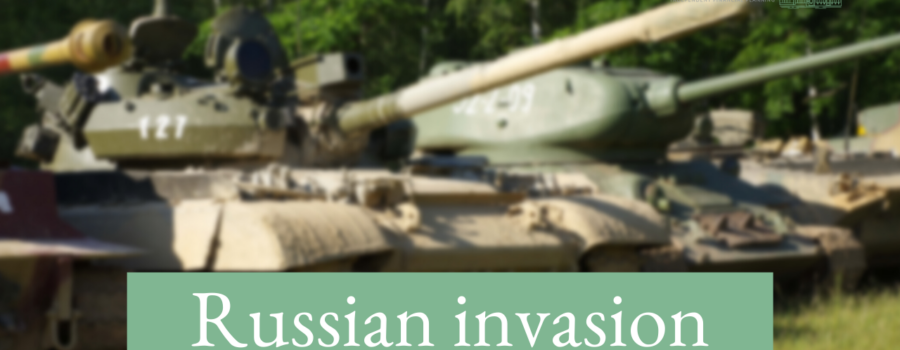First and foremost, Russia’s invasion of Ukraine is a human tragedy.
This military action has already been described as the darkest day in Europe since World War Two.
When we reviewed the 2022 annual forecasts from investment providers at the end of last year, inflation fears and Covid-19 variants dominated thinking.
Geopolitical tensions featured too, and what has occurred today might well, depending on its outcome, prove to influence market sentiment to a greater extent than tightening monetary policy.
It’s early days for this story and too soon for anyone to predict what could happen next, on the ground or in markets.
Instead of crystal ball gazing, some wisdom from the history of markets to help you stay the course over the coming days, weeks and months.
Equities tend to shrug off geopolitical conflicts.
From a behavioural perspective, as investors, we must avoid the ‘but, this time it’s different’ trap because this conflict is much closer to home than others, indeed taking place on our continent.
Any short term market reaction is likely to pale into insignificance when measured against the long term performance of portfolios.
Remember diversification, too.
When markets (or investors) wobble, we typically see a ‘flight to safety’ with risk money moving towards perceived less risky assets.
Today has seen quality government bonds, the US dollar, Swiss franc, Japanese yen and gold all perform well as a result.
We’ve also seen the oil price break through $100 a barrel today, for the first time since 2014, with fears about disruptions to the global energy supply.
Despite the uncertainty and nervousness prompted by this invasion, the FTSE 100 index of leading UK company shares held up reasonably well today, closing down 3.63% at 7,225.97 points.
As I write this, across the pond in the US, the S&P 500 is down just 0.68% during trading.
It’s a worse position for the Russian stock market, with its main index down 45% before recovering some losses.
Stock markets go up and down in value; it’s what they do. This short-term volatility is the price we pay as investors for access to the long-term gains they offer.
At least in the short term, what comes next could be painful for investors.
Severe financial sanctions have been promised, likely to hurt both Russia and those western nations imposing such measures.
We’re nervous about China seizing an opportunity to invade Taiwan.
As things proceed in the coming days, we urge all investors to remember the fundamentals.
Focus on the long-term and the risk-reducing power of diversification within your portfolio, and never attempt to time the markets.
Worrying about losing money in your ISA, pension or general investment account is natural, and we’re always here to chat if you need additional reassurance.
But, more than anything, our thoughts remain with the people of Ukraine who face unimaginable horrors as the Russian invasion unfolds.

